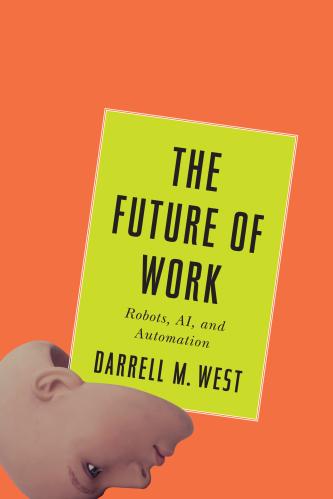

10:00 am EDT - 11:00 am EDT
Past Event
10:00 am - 11:00 am EDT
1775 Massachusetts Avenue N.W.
Washington, DC
20036
Robots, artificial intelligence, and driverless cars are no longer things of the distant future. They are with us today and will become increasingly common in coming years, along with virtual reality and digital personal assistants. As these tools advance deeper into everyday use, they raise questions regarding the transformation of society, the economy, and politics. If companies need fewer workers due to automation and robotics, what happens to those who don’t have the skills for new jobs? And in terms of the political consequences, will the disruptions associated with new technologies and new business models produce a chaotic era of Trumpism on steroids?
On May 14, Brookings Vice President Darrell West debuted his book, “The Future of Work: Robots, AI, and Automation.” In it, he argues that society needs to rethink the concept of jobs, reconfigure the social contract, move toward a system of lifetime learning, and develop a new kind of politics for an era of economic dislocation. With the U.S. governance system in shambles because of political polarization and hyper-partisanship, dealing creatively with the transition to a fully digital economy will vex political leaders and complicate the adoption of remedies that could ease the transition pain.
After a presentation on his book, West was joined by a panel of experts to discuss how robots, artificial intelligence, and automation will transform society, the economy, and politics. They discussed the transition to a digital economy and took questions from the audience. This event was webcast live.
Related Content

Darrell M. West
October 15, 2019
Moderator

Panelist


Solomon Messing, Joshua A. Tucker
March 3, 2026

Rosanne Haggerty, Ruby Bolaria Shifrin
March 2, 2026

Anthony F. Pipa, Adam Aley
March 2, 2026